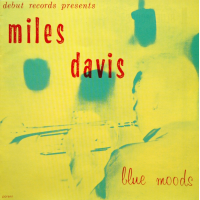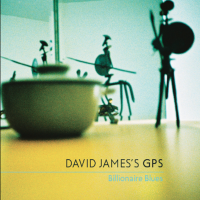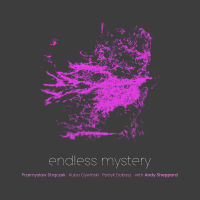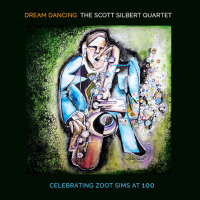Articles by Mark Werlin
Human Feel: Speak To It

by Mark Werlin
What is chamber jazz? The emergence of chamber jazz as a genre can be traced to the innovative sextet sides recorded in the mid-1930s by bandleader John Kirby, and to the trio and small-ensemble post-war recordings of Benny Goodman. By the late 1940s, the term 'chamber jazz' was widely used in industry publications such as Billboard magazine, academic journals, and newspaper and magazine reviews of performances by small groups. A distinction was drawn between chamber jazz and big-band ...
Continue ReadingNew Music in an Anxious Time: Teis Semey, Peggy Lee and Philipp Gropper

by Mark Werlin
Historians of jazz identify the African-American civil rights struggle circa 1945-1965 as the locus for the most active involvement of jazz music in expressions of social and political protest. One of the earliest recorded instances of explicit political protest in jazz, “Strange Fruit," was refused by Decca, singer Billie Holiday's record label, for fear of reprisals from Southern radio stations and record stores. The independent Commodore label released the record in 1939; a searing indictment of lynching and a landmark ...
Continue ReadingMark Werlin's Notable Hi-Res Releases in 2018

by Mark Werlin
2018 has been a good year for jazz music in hi-res audio formats. ECM, Songlines, Intakt, ACT Music, Firehouse 12, Foné, Mack Avenue, TRPTK, and other independent labels released newly-recorded and recent catalog albums in high resolution through download vendors, Bandcamp, and the labels' own websites. One US music vendor lists more than 300 jazz titles that became available as hi-res downloads in 2018. High resolution audio has become increasingly affordable and widespread, with hi-res DACs included in portable and ...
Continue ReadingTRPTK: Breaking Genre Walls

by Mark Werlin
TRPTK, an independent new music label based in the Netherlands, produces hi-res recordings with astonishingly realistic sound quality. TRPTK's catalogue of jazz and new music erases the boundaries of musical genres, and pursues a commonality of purpose that overrides differences in cultural and national backgrounds. Æon Trio: Elegy Elegy, performed by the jazz ensemble Æon Trio of Japanese pianist-composer Atzko Kohashi, Dutch bassist Frans van der Hoeven and Russian-born cellist Maya Fridman, draws on the diverse streams of ...
Continue ReadingEric Dolphy: Gone In The Air

by Mark Werlin
Newly-remastered SACD reissues of Eric Dolphy's albums for the Prestige label mark the 90th anniversary of his birth. The recording sessions that Eric Dolphy led in the last four years of his life advanced the evolution of jazz. It was a tragedy that Eric Dolphy gave himself so completely and unselfishly to art that he neglected to attend to the mundane demands of bodily health. The impact of his death on June 29, 1964 at age 36 ...
Continue ReadingDálava, Gordon Grdina and Mikkel Ploug: Songs Old, and Sounds New

by Mark Werlin
Strangeness--a word that connotes foreignness, otherness, and a sense of unease when confronted by the unfamiliar. The sound of recognizable musical forms may attract us, in the same way we are drawn to familiar faces or voices. The sound of a foreign language may set us on the alert; syllables we do not recognize, meanings we cannot understand. And what if the words cannot always cross the boundary from one language to another, and the meanings never be ...
Continue ReadingCharles Mingus and Miles Davis: Changing Moods

by Mark Werlin
The recordings of Charles Mingus in the mid-1950s document a musical voice so distinctive that they are immediately recognizable today. But Mingus' obsessive commitment to the primacy of the composition was not always shared by his peers, nor understood by his critics. A public feud between Mingus, who was struggling unsuccessfully to win critical recognition and financial rewards, and Miles Davis, then poised for prominence and commercial success, contains clues to the musical conundrum that both sought to ...
Continue ReadingDavid James's GPS: Billionaire Blues

by Mark Werlin
A community of independent-minded creative musicians persists in Northern California in spite of skyrocketing rents, the collapse of the Fillmore Jazz District, and the flight of fellow artists to points south (L.A.), and East (New York, Europe). Most of the new jazz music written and performed in the Bay Area is not commercially recorded or marketed to the broader American jazz audience. The responsibility to document their work rests with the musicians themselves. David James's GPS--Billionaire Blues, ...
Continue ReadingThe Westerlies: New Music For Brass In Hi Res

by Mark Werlin
The Westerlies, a self-titled album performed by an “accidental brass quartet" of two trumpet players and two trombonists, is a stunning accomplishment: a reference-quality recording of trans-genre new instrumental music that managed to beat the odds and reach a wide audience. The album's unexpected success points to the importance of curation in an overcrowded online music sphere. One track from the album, an arrangement of the English folk ballad “Saro," was promoted by Tom Huizenga, a music producer ...
Continue ReadingJohn Coltrane: Coltrane And Crescent—Shadows And Light

by Mark Werlin
Visual art is a play of shadow and light, and contrast makes the forms visible. In the best jazz music, there is a kind of inner light that emanates from the musicians, the light of creative impulse, the light of spontaneous artistic expression. Some jazz musicians--too many--cast their own shadows of addiction and self-destructiveness. But often--too often--new directions and developments in jazz are shadowed not by the musicians themselves, but by their detractors. A series of Impulse albums ...
Continue Reading












